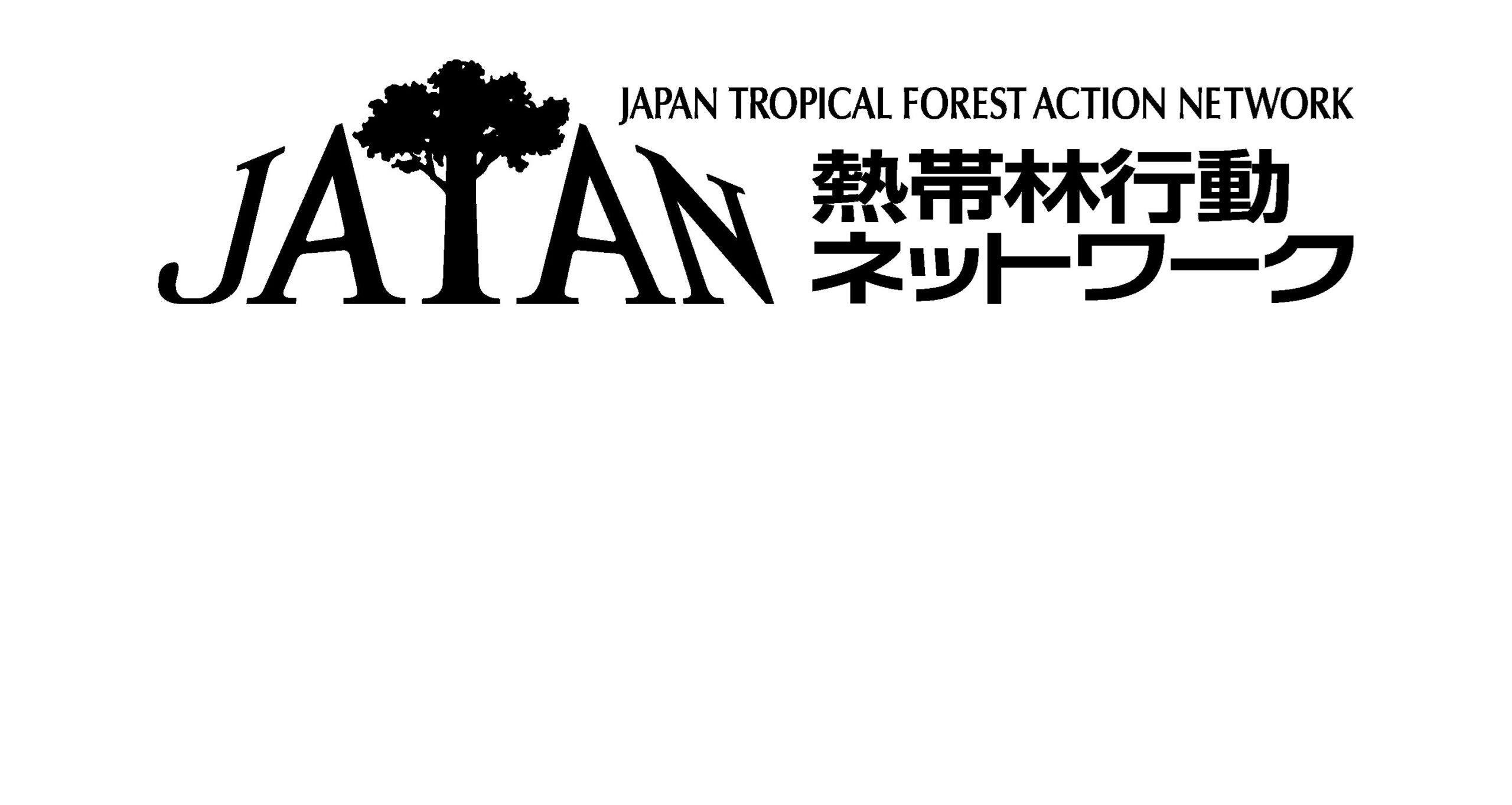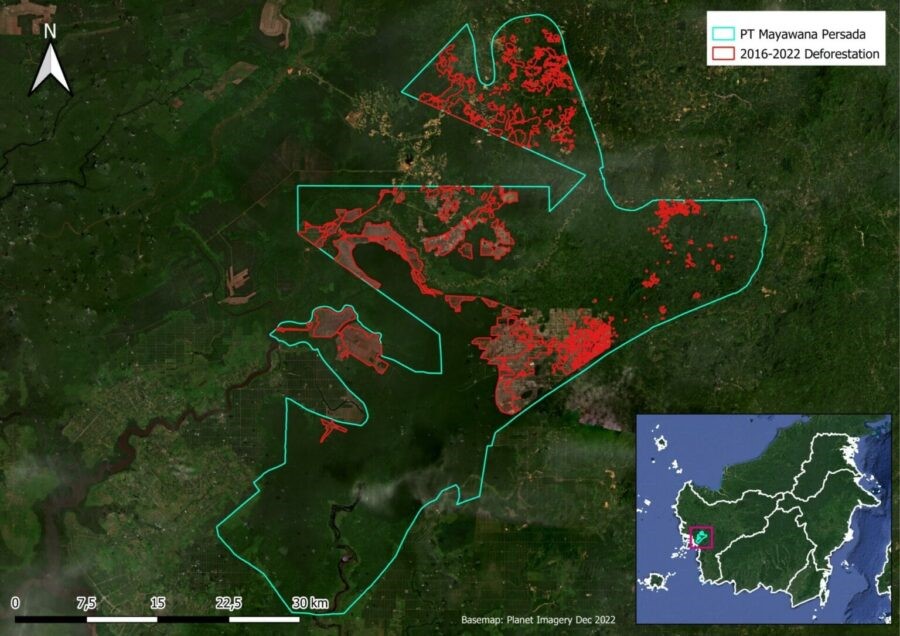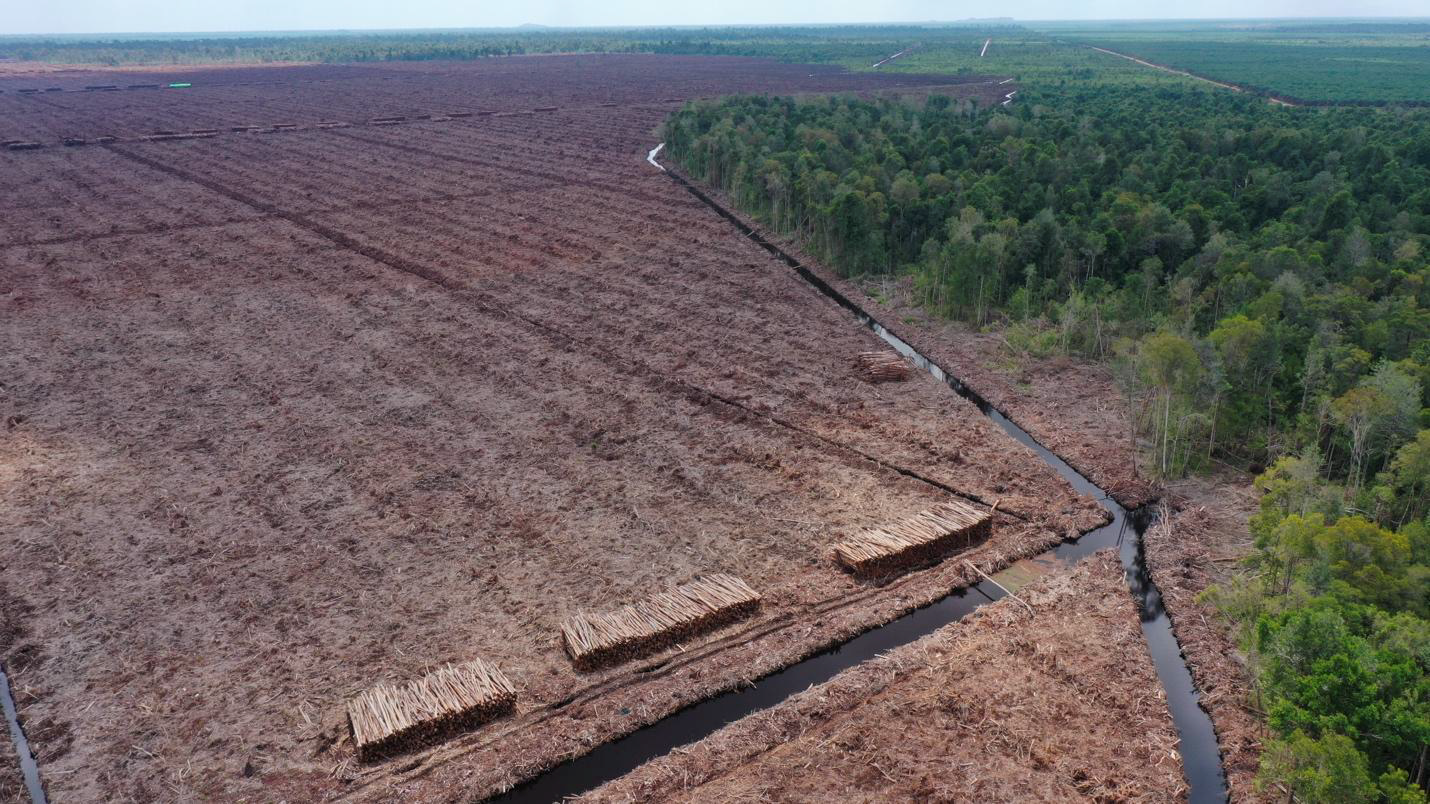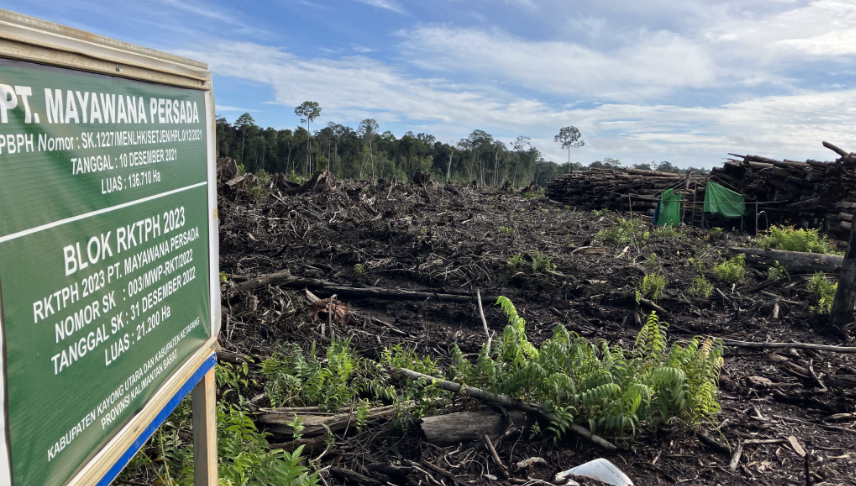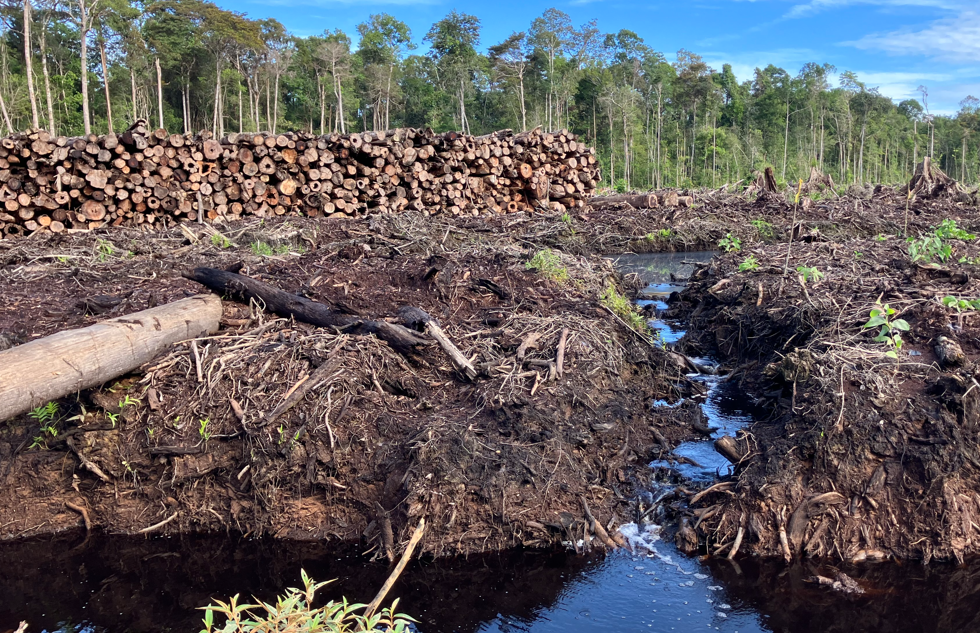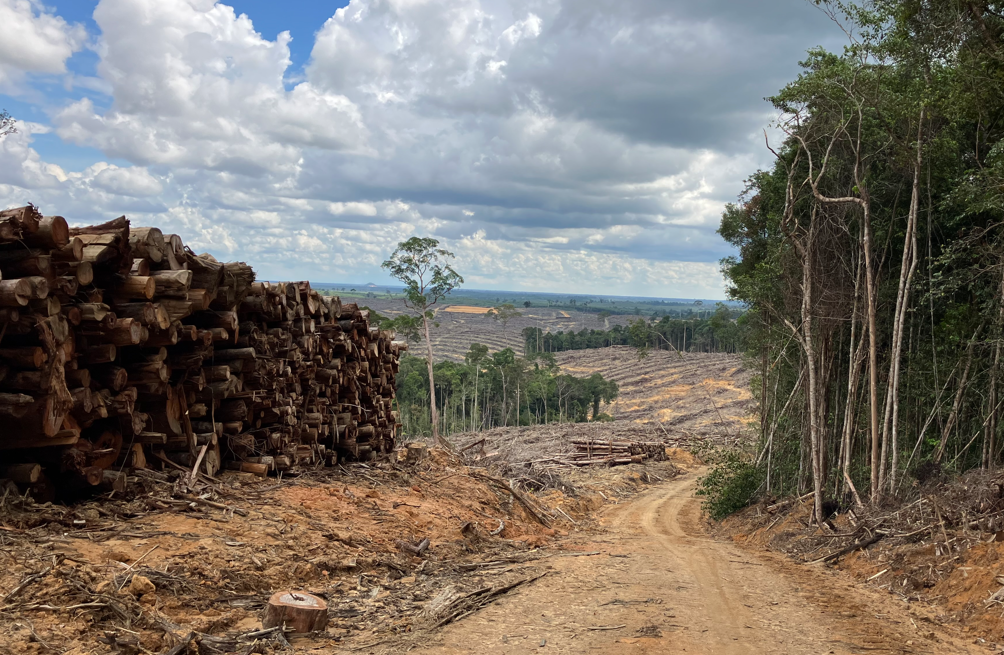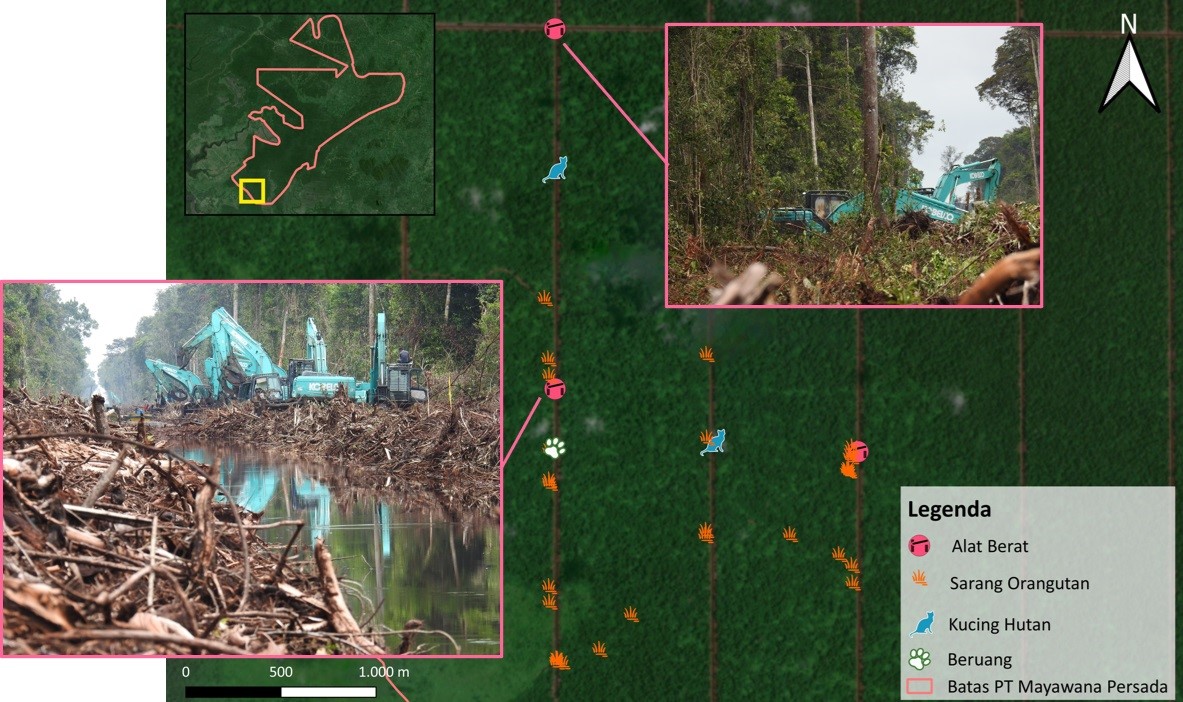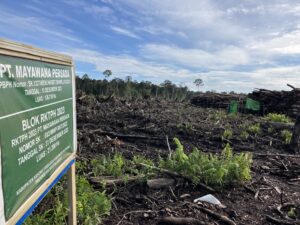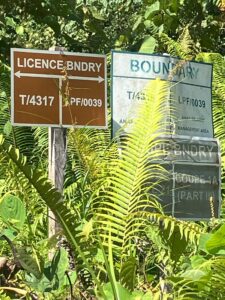Verified "Legal" Timber Products Coming from Orangutan Forest ― "Loophole Market": a Dark Void Left behind by Japan’s Anachronistic Clean Wood Act -
The EU Timber Regulation (EUTR), which came into effect in 2013, incorporates due diligence processes, such as risk assessments. Meanwhile, in Japan, the Act on Promoting the Distribution and Use of Legally Harvested Wood and Wood Products (commonly known as “Clean Wood Act”) has been revised and will go into effect in April 2025. Due diligence will finally become mandatory for timber-related businesses. However, Japan's counterpart is still hopelessly behind the world trend1), although the law was launched more than 10 years after EU and US.
From December 30, 2024, EUTR will be replaced by the new European Deforestation-free Products Regulation (EUDR), a landmark law requiring companies to adhere to strict regulations to ensure their products are free from deforestation, extending its scope beyond legality to cover sustainability aspects. The impact of the production of commodities like timber products and palm oil goes far beyond deforestation. It also contributes to the destruction of other important natural ecosystems and often involves the violation of the rights of local communities and Indigenous Peoples2).
It has been pointed out that a significant amount of timber derived from clear felling of native forests associated with acacia plantations by an industrial forestry company may be used to make plywood and other timber products for Japanese market. The company is a group company of Alas Kusuma, an Indonesian giant conglomerate that has had business ties with Japanese timber trading companies for many years. The area where clear-cutting is being rapidly expanded not only contains habitats for endangered wildlife such as orangutans and deep peat soils, but also includes many farmlands of the local people and indigenous customary lands. If this situation is left unchecked, there is no small concern that Japan, which limits the scope of application to “legality” only, may soon be regarded by the international community as a “loophole market” in the near future.
Akira Harada, Director of Japan Tropical Forest Action Network (JATAN) said:
In general, timber companies operating in countries with weak law enforcement and oversight may exploit loopholes in international trade and customs regulations to launder illegal timber. Corporations should be ambitious to adopt and implement ‘no deforestation, no peat, no exploitation’ (NDPE) policy, a voluntary and proactive approach to corporate responsibility. Major palm oil companies have increasingly applied NDPE policies to make palm oil more sustainable, which will contribute to reducing deforestation in Indonesia. But fewer timber-related companies in Japan adopt NDPE policies .
PT Mayawana Persada, which was originally a subsidiary of Alas Kusuma group until December 20223), has in recent years been involved in the largest level of deforestation in Indonesia. According to a survey by AidEnvironment, the company was engaged in exploitative practices with rampant destruction of native forest of approximately 2,800 ha and 5,300 ha in 2020 and 2021, respectively, and has cleared an additional 6,700 ha in 20223). Greenpeace reported that more than 33,000 hectares, equivalent to a little more than half of Tokyo's 23 wards, has been cleared since 20215).
Grueling land conflicts continue to rage in the areas surrounding Mayawana's concession, with no end in sight. In a field survey conducted by JATAN in June last year, we reported on a fierce dispute between two neighboring communities in Kabupaten Ketapang over the boundary. Behind the conflict, we recognized devious manipulation of the company who tries to manage its business by intentionally creating social divisions and economic disparities between the two communities. In Dusun Gensaok, Desa Kualan Hilir, Kecamatan Simpang Hulu, we witnessed a painful destruction of almost half of their hutan adat (customary forest), which had been carefully protected according to strict adat law, by Mayawana6).
A large-scale deforestation by Mayawana is taking away habitats for protected species such as Borneo orangutans (Pongo pygmaeus), helmeted hornbills (Rhinoplax vigil), and sun bears (Helarctos malayanus). More than 55,000 hectares of tropical forest remain in Mayawana concession area, making it a critical test case for efforts to control deforestation in Indonesia7). In addition, about 60% of the project site is covered by deep peat soil, and between 2022 and October 2023, 14,505 hectares of peat swamps were excavated, emitting approximately 800,000 tons of CO28) 9). This is equivalent to the amount of CO2 emitted by all airport facilities in Japan in a year.
Against this backdrop, FSC formally accepted the complaint filed by Mighty Earth, a U.S. based environmental advocacy organization against Alas Kusuma Group for violation of FSC’s ‘Policy for Association’10) 11). FSC also revoked its Chain of Custody Certification of Alas-affiliated wood processing company PT Harjohn Timber12) (December 6, 2023) and suspended its Chain of Custody Certification of PT Sari Bumi Kusuma13) (December 8, 2023). As a result, Japanese recipient companies such as Itochu Kenzai Corporation and Sumitomo Forestry14), which have continued to purchase FSC-certified timber, are now under pressure to review their procurement practices.
In late March this year, the Indonesian Ministry of Environment and Forestry (MoEF) issued a letter (Nomor: S. 360/PHL/PUPH/HPL.1.0/8/3/2024PH/HPC.1.0/8/3/2024) telling PT Mayawana Persada to stop all forest clearing activities15). The Ministry called on the company to not only stop all logging activities but also restore what it has destroyed.
Amanda Hurowitz, Senior Director for Southeast Asia, Mighty Earth said:
Our evidence showed that Mayawana Persada had systematically cleared deep peat and tens of thousands of hectares of intact forest, and in scenes reminiscent of the worst years of the palm oil industry, brought in a battalion of bulldozers to destroy critical orangutan habitat and the sacred, ancestral lands of Indigenous communities."
Threatening years of progress of declining deforestation rates, the Indonesian government did the right thing and stepped in and ordered the clearing to stop. Now, Mayawana Persada must repair the damage it has done by damming the canals to restore the peat and undertake other crucial conservation efforts. It must also make restitution to the communities it has impacted. Until that happens and the FSC concludes its investigation, Japanese companies should suspend the Alas Kusuma Group and any entities connected to Mayawana Persada.
Official data from the Indonesian government has revealed the names of many of Japanese recipient companies. Some of these companies include major trading companies with NDPE policies. When JATAN contacted several of these companies by e-mail last July, they admitted to having traded plywood products with the Indonesian companies listed below, but uniformly denied that the plywood products they purchased were contaminated with timber sourced from the Mayawana project site. Although these companies indicated in JATAN’s questionnaire survey that they give priority to FSC certification in their timber procurement16), Alas Kusuma-affiliated timber processing companies have had their COC certifications suspended or revoked by FSC.
In addition, Sumitomo Forestry has been expanding its industrial plantation business since 2010 in collaboration with three companies under Alas Kusuma’s umbrella companies (PT Wana Subur Lestari, PT Mayangkara Tanaman Industri, and PT Kubu Mulia Forestry17). Regarding their supply and demand of products, the company has been purchasing plywood from PT Harjon Timber, an Alas-affiliated wood processing company, at least until April 202018).

Chart 1: List of Japanese Companies Accepting Plywood Products from Harjon Timber and Accepted Weight
(Base unit: kilogram, Source: Indonesia Trade Data 2018-2020)

Chart 2: List of companies receiving plywood products suspected of containing wood from Mayawana Persada
(Source: 2022 RPBBI*)
* Rencana dan Realisasi Pemenuhan Bahan Baku Industri Primer Hasil Hutan Kayu: Industrial Raw Material Supply Plan Information System (SI-RPBBI) managed by Indonesia’s Ministry of Environment and Forestry
Contacts:
Akira Harada
Japan Tropical Forest Action Network (JATAN) Representative Director
harada[α]jatan.org
Amanda Hurowitz
Mighty Earth Senior Director of Forest Commodities
amanda[α]mightyearth.org
Note: Please replace [alpha] with @ respectively.
【Bibliography and Notes】
1) JATAN. April 2024. "Risks Hidden in Timber Supply Chain Sourced from Tropical Forests in Borneo"
2) Greenpeace. 2020. "A new EU regulation to protect the world’s forests and ecosystems"
worlds-forests-ecosystems.pdf
3) "In December of 2022, 50% of shares in Maywana Persada were sold to Green Ascend Sdn Bhd, a company owned by a shareholder domiciled in the British Virgin Islands called Green Ascend Group Limited. Alas Kusuma’s remaining shares in Mayawana Persada were sold to Beihai International Group in December of 2023, a company owned by Balaji Investment Group Holdings Ltd domiciled in Samoa".(Mighty Earth, "LETTER FROM GOVERNMENT MINISTRY TELLS INDONESIA’S LARGEST DEFORESTER TO STOP CLEARING")
4) AidEnvironment. 2023. "Two Companies Alone Cleared 10,600 Hectares of Indonesian Forest in 2022"
5) Greenpeace. 2024. "Deforestation Anonymous: Rainforest destruction and social conflict driven by PT Mayawana Persada in Indonesian Borneo"
6) JATAN. 2023. "Violated Indigenous Customary Lands and Serious Social Conflicts: Land Grabbing by PT Mayawana Persada in West Kalimantan, Indonesia"
7) Greenpeace. 2024, op. cit.
8) JATAN. 2024. "Behind the Indonesian Plywoods: Bank’s Responsibilities against Alas Kusuma Group’sEnvironmental and Social Problems"(Fair Finance Guide Case Study Report)
9) Satya Bumi. 2024. "Minister of Environment and Forestry, Do not let PT Mayawana Persada worsen the climate crisis by brutally clearing natural forests and peatlands in West Kalimantan"
10) Mighty Earth. 2023. "FSC ACCEPTS COMPLAINT FROM MIGHTY EARTH AGAINST “LAST OF THE BIGDEFORESTERS” OVER MASSIVE RAINFOREST CLEARING IN INDONESIA"
11) FSC. December 2023. "After reviewing the complaint, FSC decides to launch a case against Alas Kusuma"
12) FSC. PT Harjohn Timber Certification details (December 06, 2023).
13) FSC. PT Sari Bumi Kusuma Certification details (December 08, 2023).
14) AidEnvironment. 2021. "Alas Kusuma Group second largest deforester in Indonesia’s pulp and paper sector"
15) Mighty Earth. 2024. "LETTER FROM GOVERNMENT MINISTRY TELLS INDONESIA’S LARGEST DEFORESTER TO STOP CLEARING"
16) JATAN. March 2024. "Summary of FY2023 Company Questionnaire Survey Results on Procurement Policy and Supply of Timber Products Sourced from Indonesia and Sarawak"
17) "Sumitomo Forestry Expands Plantation Forest Operations in Indonesia’s Island of Kalimantan"(December 9, 2020)
18) In an email sent to JATAN on March 14, 2024, Sumitomo Forestry stated, "Three companies (PT. Wana Subur Lestari, PT. Mayangkara Tanaman Industri, and PT. Kubu Mulia Forestry) are 100% owned by our group from June 2021, and our joint venture relationship with Alas Kusuma has already been terminated. In addition, for transactional reasons, no new contracts for the procurement of plywood have been signed since January 2023.” So far, Sumitomo Forestry has not made any official announcement by way of a press release.
【Reference Articles】
【July 5th Seminar】Verified "Legal" Timber Products Coming from Orangutan Forest --- How Products from at-risk Landscapes Enter Japanese Markets
Violated Indigenous Customary Lands and Serious Social Conflicts: Land Grabbing by PT Mayawana Persada in West Kalimantan, Indonesia
【Reference Images】
- Image 1: 2016 to 2022 Deforestation (red highlighted) by PT Mayawana Persada (Image Courtesy WALHI)
- Image 2: Peatland Development by PT Mayawana Persada (Image Courtesy WALHI)
- Image 3: Peat Forest Destruction inside PT Mayawana’s Concession (ⓒJATAN)
- Image 4: Peat Forest Destruction inside PT Mayawana’s Concession (ⓒJATAN)
- Picture 5: Deforestation of Dusun Gensaok Native Customary Land (ⓒJATAN)
- Picture 6: Map showing Endangered Wildlife habitats inside Concession (Image Courtesy Satya Bumi)

